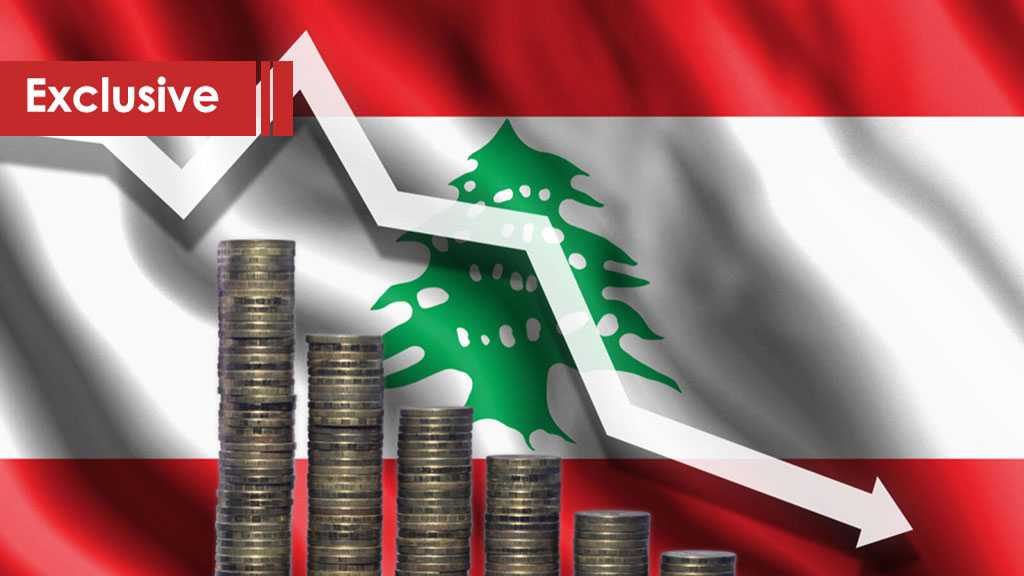
Occupy Down Town Beirut! Is Lebanon’s Economy Collapsing beyond Resuscitation?

By Fatima Haydar
Beirut – Lebanon, the tiny Middle Eastern country on the Mediterranean Sea, is still recovering from a devastating civil war. Almost three decades had passed and Lebanon is still suffering from the consequences of that war which ended in 1990.
The dire economic situation is only getting worse. Thanks to the faltering economy, it is the third-highest indebted country in the world in terms of the ratio of debt-to-GDP.
Economist and Professor of Finance at the Lebanese University, Dr. Ali Awdeh, tackles the economic crisis in Lebanon in an interview with al-Ahed News.
“We are facing a real crisis which is being exaggerated by the complex political situation,” Dr. Awdeh said, adding that “this is not the first time Lebanon has faced such a crisis. Indeed, we have had more difficult times than what we are currently facing.”
He compared the economic situation in Lebanon prior and post 2000, “If we are talking about the budget deficit, the public debt, the trade deficit, or the Balance of Payments [BoP] deficit, sometime after the war between 2000 and 2002, then Lebanon has experienced worse times; though, there was no state of panic.”
“However, nowadays, the gravity of what makes people feel how bad the situation is, is that the political situation is worse and more complicated than before; the danger lies in the polarity of division among the parties and the depth of political differences; Not to mention, the problem posed by corruption, which has become more deeply rooted than it has been in the previous period,” Dr. Awdeh explained.
Meanwhile, the Lebanese economist explained that both the financial and monetary situations in the country are facing difficulties. Though, he clarified that the situation was not as bad as it seemed, “there is stability in the banking sector in general, and the monetary sector is also fairly stable.”
Conversely, the scarcity of US dollars is causing a crisis for Lebanese citizens and businesses. Yet, this scarcity is not “spontaneous”, as Dr. Awdeh put it, explaining that the Bank of Lebanon [BDL] – the country's central bank – was following “this policy of withdrawing US dollars from Lebanese markets to keep as much of the American currency in Lebanon. But at the same time, the Central Bank cannot control the circulation of dollars.”
The Lebanese University professor shed light on the crisis caused by the budget deficit, specifically the balance of payments and trade deficits. He said that “due to lack of sound financial decision, the financial policies set forth for the coming 20 or so years were not on the right track.”
According to Dr. Awdeh, the monetary policy was trying to fill in the gaps caused by the financial decision, though the former was unable to cover all of the latter’s aspects.
The economist stressed the need for a sound financial decision, which will pave the way for a less dependent economy. “It is a chain or a cycle, the first step being a sound financial decision-making and financial reforms; and thus, directing public finance into the right direction,” Dr. Awdeh clarified.
Furthermore, he tackled the policies of the BDL and its governor Riad Salameh, which had been in place since 1993, noting that financial and monetary policies should be “more pragmatic” – in other words, according to the economist, they should be more flexible – to change with the changing economic circumstances.
Dr. Awdeh focused on the positive and negative aspects of these policies. He spoke of currency exchange rates, interest rates and dollarization.
“The fixed currency exchange rate has had some positive aspects at first, as people had no confidence in the Lebanese pound,” he said, adding that this policy led to a state of stability in the exchange rate and a stability – to some extent – in inflation.
Regarding interests, the expert saw that it would have been much better if the Lebanese government followed a more flexible approach – one that would increase and decrease in accordance with economic developments.
The dollarization – according to Dr. Awdeh – was another failure in the policies of the BDL. He explained that the Lebanese economy “is very much dollarized and a large amount of deposits at the banks are in US dollars. As a result, a large part of the loans granted by banks are in US dollars.
He said that the BDL “could not solve this problem, so the economy remained dollarized while the exchange rate was constant.”
Nonetheless, the expert came to conclusion that many of the BDL’s policies and measures aimed to enhance the situation, but what happened was the opposite. He said the BDL should have paid attention to what he called “side effects”.
Though, Dr. Awdeh stressed the necessity on the part of the Lebanese government to take the necessary measures to deal with the crisis saying, “This is an extraordinary situation – a situation that required greater alert from the government”.
In a parallel notion, the economist related the economic situation in Lebanon to the regional and international arena. Dr. Awdeh believed that “it is no one’s interest – at home or abroad – that the economic situation in Lebanon collapses.”
He further added, “Regardless of whether they are [regional and international states] on our side or not, there are about 2 million Syrian refugees in Lebanon; and if the economy collapses, they will leave and become other countries’ burden.”
“So, no one has an interest in the significant deterioration of Lebanon's economic situation,” Dr. Awdeh concluded.
Comments



